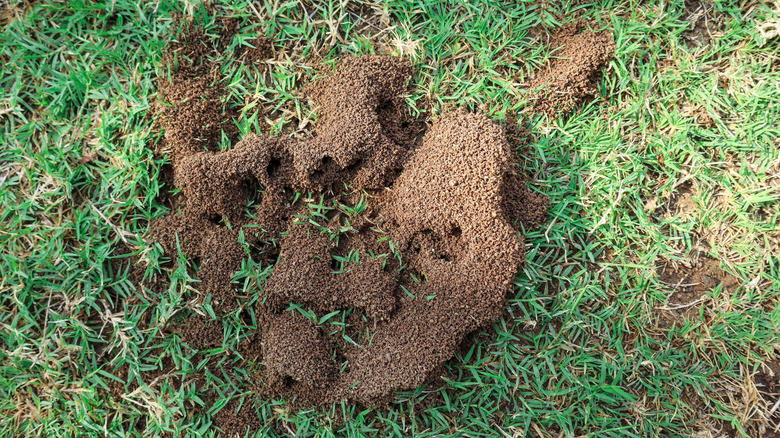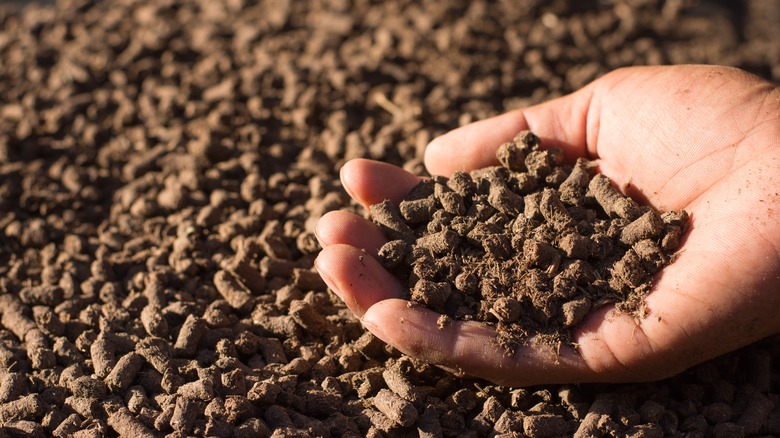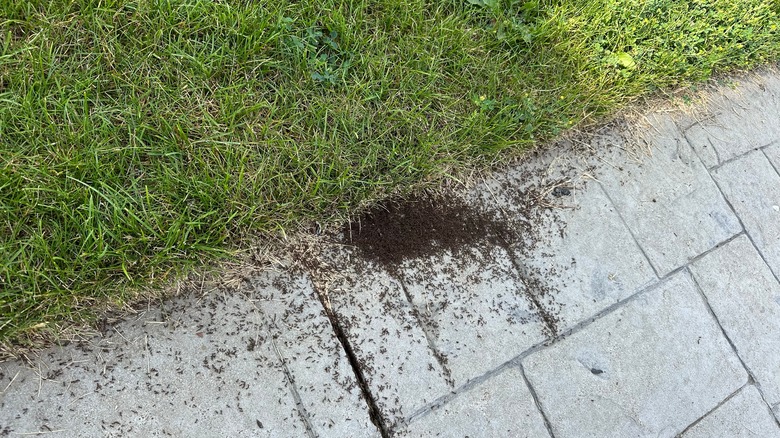Your Fertilizer May Be Attracting Ants To Your Yard
There's nothing quite like the feeling of finishing a productive lawn care session and stepping back to admire that fresh layer of fertilizer spread through the grass. The satisfaction can quickly fade, however, when you notice something else: an unwelcome line of ants marching across your yard. If you're like most people, your first reaction to this sight might be to question what's attracting them and how to get rid of them. The truth is, your fertilizer isn't just feeding your lawn — it's also feeding the ants.
These pesky insects see both organic and protein-rich fertilizers as a delicious food source. They often contain animal byproducts, and while that works well for feeding your soil and grass, the dried proteins also serve as an invitation for hungry ants. Through understanding this connection, you can work out if organic fertilizers are right for you and discover a solution that helps you take care of your yard without encouraging ants onto your property.
The secret ingredient in some fertilizers that draws ants in
Organic fertilizers are known for their ability to improve soil health over a long period, releasing nutrients as their natural components break down. What many people don't realize is that these products — along with meat-based fertilizers — can also act as a powerful draw for insects. Foraging ant colonies have a strong need for phosphorus to thrive. Fertilizers that use animal byproducts like bone, blood, or meat meal are rich in this attractive element. The ants' highly developed sense of smell allows them to detect these food sources from quite a distance.
When you spread this type of fertilizer on your lawn, you are laying out a feast that is difficult for them to ignore. While the ants aren't interested in the lawn itself, the sheer number of ants that come for a meal can cause problems. As they build and expand their nests, they create mounds of dirt that can smother patches of grass. Their tunneling can also loosen the soil to a degree that it affects the stability of the ground. To keep ants from building hills in your yard, you'll need to address the root of the issue: the fertilizer.
How to keep hungry ants from taking over your fertilized yard
While ants are generally harmless to your lawn, an out-of-control population can become a problem. One way to prevent them is to choose a different kind of fertilizer. If you've been using a protein-rich or organic option, consider switching to a synthetic fertilizer that doesn't have the types of food that attract the outdoor ant species in your area. If you prefer to stick with organic options, look for plant-based fertilizers that don't contain animal byproducts.
You can also work to make your yard less hospitable. Ants prefer loose, dry soil, so making sure your lawn is watered regularly can help. A well-maintained lawn full of thick grass can also reduce the number of ant nests and mounds. If the problem continues, there are several natural ways to get rid of ants, including using a mixture of dish soap and water to destroy their scent trails or sprinkling diatomaceous earth on their nests and trails. This natural powder is deadly to ants but safe for humans and pets.


